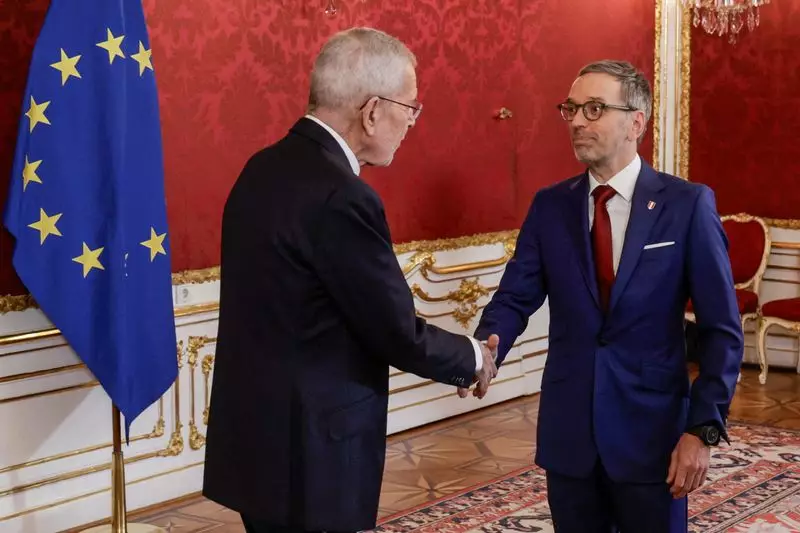Austria’s political arena has long been a stage for central parties vying for control. However, the recent electoral results have thrust the far-right Freedom Party (FPO) into the limelight, raising questions about the future of governance in the nation. This unprecedented emergence poses a challenge to traditional political structures and invites scrutiny of the dominant party dynamics. Amid these developments, the FPO stands prepared to take the reins of governmental authority, marking a significant departure from the past.
The Rise of the Freedom Party
Founded in the aftermath of World War II, the Freedom Party has undergone a transformative journey from a nationalist faction to a prominent political entity. Its triumph in September’s parliamentary election, where it secured over 29% of the vote, positioned it as a formidable player in Austrian politics. The FPO’s leader, Herbert Kickl, has articulated a vision grounded in populism, echoing phrases like “First the people, then the chancellor,” which resonate deeply with a constituency disillusioned by conventional governance.
While the FPO has previously been a junior partner in coalition governments, it has never enjoyed the primary leadership role. This upcoming potential for leadership suggests a radical shift in the Austrian political landscape, driven by a growing base of support for the party’s eurosceptic and often controversial policies, particularly in relation to immigration and foreign affairs.
The days leading up to the anticipated coalition negotiations were marked by failed attempts from the centrist parties to form a stable government. The conservative People’s Party (OVP), which finished second in the election, had sought to unify various factions under its leadership. Yet after numerous unsuccessful coalition discussions, Chancellor Karl Nehammer resigned amidst pressure and dissatisfaction related to how well he managed the party’s positioning against the FPO.
This breakdown presents an opening for Kickl and the FPO to potentially step into a leading role, a position that has been vehemently resisted by many within the political establishment, particularly those aligned with the OVP. The party’s new interim leadership under Christian Stocker indicates a changing tide, as leaders express a willingness to enter coalition talks with the FPO, a notion that would have been unthinkable just weeks prior.
While the FPO and OVP share certain ideological ground—especially their tough stance on immigration—their foundational differences pose significant obstacles to any cooperative governance. The central dispute centers on economic policies, particularly concerning budget deficits and austerity measures. The OVP is cautious about some of FPO’s proposals, fearing they might undermine economic stability while the FPO calls for aggressive cuts to privileged sectors, such as the Chamber of Commerce.
Underlying these discussions is the potential fallout from the FPO’s position on foreign affairs, especially its reluctance to support Ukraine in its conflict with Russia. The implications of such stances could complicate Austria’s relationships within the European Union and heighten concerns over human rights and media independence—issues President Van der Bellen has pledged to uphold.
Looking Toward the Future
As the political narrative unfolds, Austria stands at a crossroads. Recent statements from President Van der Bellen suggest that the previously strong opposition to collaborating with the FPO within the OVP is beginning to wane. His observations imply that a unique opportunity for a new style of governance could be emerging, one that involves grappling with complex issues through potentially unconventional alliances.
The potential coalition may either stabilize Austrian politics or lead to further turmoil, depending on how well divergent interests can coalesce into cohesive policy-making. If negotiations falter, a snap election may become inevitable, which, based on recent polling, could very well favor the FPO yet again.
Austria’s political future now hangs in the balance, characterized by shifting allegiances, emerging populist support, and a populace eager for decisive governance that reflects their desires. Whether a coalition will form or the country will be propelled towards new elections remains to be seen, but the implications of these developments will undoubtedly influence the trajectory of Austrian politics for years to come.

